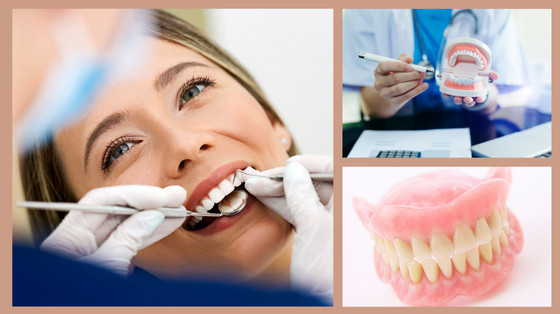This post covers the best tips on how to replace a missing tooth, or several missing teeth. Everyone knows that having a missing tooth can knock your confidence. Even one missing tooth can have you feeling more self-conscious and concerned about people around you noticing your gap. If this is something which you can relate to, then you may be pleased to know that there are several options available for replacing missing teeth, including dentures, bridges, and dental implants.
How Can I Replace a Missing Tooth (or Several Missing Teeth)
Bridges are a more fixed option that use the surrounding teeth as support for a replacement tooth or teeth. They are typically made of porcelain which can often be adapted to match the colour of your remaining natural teeth.
Dental implants are a more permanent option that involves implanting a small titanium screw into the jawbone to support a replacement tooth. They do not rely on remaining natural teeth to anchor them down as the implanted screw acts in a similar fashion to a natural tooth’s root.
Ultimately, the best option for replacing missing teeth will depend on your individual needs, and the health of your mouth and any remaining natural teeth. Therefore, the most suitable option to meet your needs can only be decided in consultation with your qualified dentist.
What Are Dental Implants?
Most patients have heard of dentures and bridges, but fewer know what dental implants are despite their growing popularity. They are made up of three parts: small titanium screws which are inserted into the jawbone, where they act as a replacement for the roots of missing teeth. An abutment (a rod made from metal) is then placed into the implanted screw, and provides a surface for the visible replacement to be bonded to. Once in place, the screw and abutment can be used to support a variety of dental prosthetics, including single crowns, bridges, and even full arches of replacement teeth.
One of the main advantages of Sheen Dental Implants Richmond is that they can be a permanent solution for missing teeth. This is because dental implants are anchored securely in place by the implanted screw and function just like natural teeth. When looked after correctly, and where good dental hygiene practices are in place, dental implants may even last a lifetime. Dental implants can help to preserve the integrity of the jawbone by stimulating the growth of new bone cells, which can help to prevent the bone loss that often occurs after tooth loss.
When this new bone growth happens, the implanted screw can also become more secure. Another benefit of dental implants is that they can be used to replace a single missing tooth or several missing teeth. As well as this, they can be tailor made to closely match the size, shape, and even colour of your remaining natural teeth. This means that people who have dental implants can enjoy a natural-looking smile and the ability to eat and speak as they normally would.
Final Thoughts
We hope you found our post on how to replace a missing tooth, or several missing teeth, insightful. For more information about dental implants find a dental practice which specialises in implantation and ask for a consultation.

